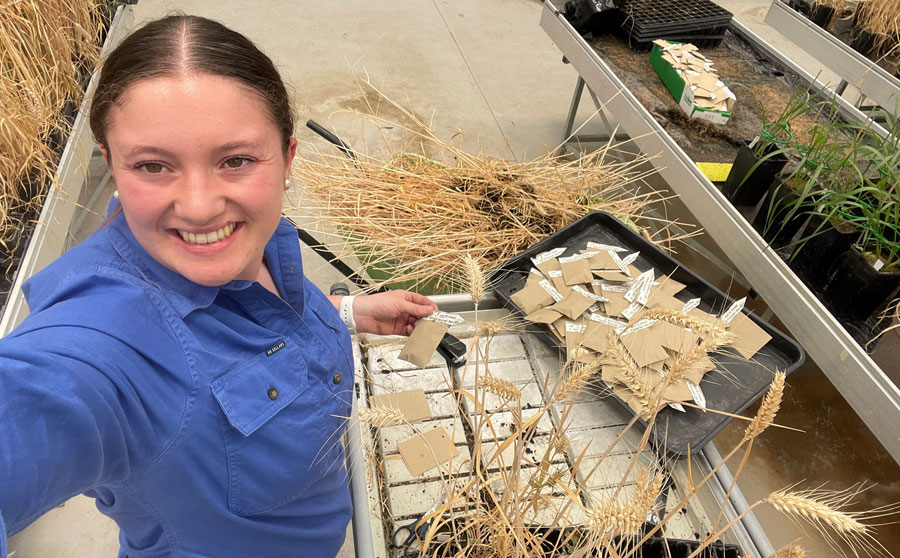After studying nutrition and exercise science, a dissatisfied Grace Moloney returned to her first love – agriculture.
Now in the third year of a Bachelor of Agricultural Sciences, Grace is one of four University of Adelaide agriculture students who have spent a semester at the University of Nottingham in England.
During her six months in the UK, she also undertook a week-long placement with the National Institute of Agricultural Botany (NIAB) at Cambridge.
The trip to the UK was made possible by support from GRDC through the AgriFutures Horizon Scholarship Program. It provides a bursary of $5000 a year during the final two years of a degree, along with professional development, work placements and networking.
Speaking via Zoom, Grace says the trip has been a huge eye-opener, exposing her to cropping systems that are radically different to her experience growing up on a broadacre farm near Maitland, on South Australia’s Yorke Peninsula.
Winter and spring have been cold, wet and muddy, with rain almost every day, despite being in one of the drier parts of the country where average annual rainfall is about 560 millimetres, or half the national average, according to the UK Met Office.
Grace marvelled at the contrast to paddocks at home, which are usually dry and dusty for much of the year.

Horizon Scholar Grace Moloney labels samples of wheat varieties harvested for a seedbank at the National Institute of Agricultural Botany Park Farm at Cambridge, England. Photo: Grace Moloney
Due to the rain and soil types, English growers plough the soil to bring moisture to the upper layers and operate on two shorter growing seasons for winter and summer grain crops.
During her placement at NIAB, which is internationally renowned for its expertise in plant genetics, Grace assisted a plant breeder working to develop shorter-season chickpea varieties.
“However, they don’t really do legumes over here,” she says.
“In the trial that he was working on, they’d planted chickpeas at the same time the wheat had gone in, but they didn’t ripen until after the wheat had been harvested and the next crop was going into the ground.”
Another difference was crops were harvested while they still contained moisture and the grain transported to large sheds for drying. As well as her university studies, Grace has made the most of opportunities to join ag tours and visit farms in northern England, Wales and Scotland.
Grace encourages other tertiary students to apply for a scholarship when the program opens in November.
“It has been the biggest eye-opening experience and networking opportunity I’ve had,” she says.
“I think it’s just allowed me to get a different perspective of how agriculture works around the world.”
AgriFutures general manager of workforce, communications and adoption Belinda Allitt says 55 “bright, young minds” have been awarded GRDC-supported scholarships under the program since it began in 2010.
Ms Allitt says it is crucial for giving scholars insight into the grains industry and, hopefully, encouraging more young people to consider a career in agriculture.
“If we don’t have sponsors, we don’t get to expose these scholars to the different industries that make up Australian agriculture,” she says.
“Increasing their awareness leads to jobs being filled and GRDC support is fundamental to the success of the Horizons scholars’ journey and the program as a whole.”
Grace is grateful to organisations such as GRDC and AgriFutures for their capacity‑building support and providing opportunities to those with a keen interest
in agriculture.
On returning to Australia, she plans to complete her degree and then work in the grains sector in Tasmania and Western Australia. She hopes to embark on a career in communications, working with others to demonstrate agriculture is “so much more than farming and agronomy”.
The AgriFutures Horizon Scholarship is one of many industry scholarships and capacity-building initiatives that GRDC supports to encourage the next generation of young people in the grains industry.
To find out what other scholarships have GRDC support, check out the capacity and ability page on the GRDC website.

























































